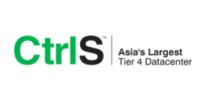In today’s fast-paced digital world, businesses must continuously adapt and innovate to stay ahead of the competition. One powerful way to unlock business potential is through custom web application development. Unlike generic, off-the-shelf software, custom web applications are tailored specifically to meet the unique needs and challenges of a business. This personalized approach not only enhances efficiency and performance but also provides a competitive edge. In this blog, we will explore the numerous advantages of custom web application development services and why partnering with a custom web application development company can be a game-changer for your business.
What is Custom Web Application Development?
Custom web application development involves creating web applications that are specifically designed to cater to the unique needs and requirements of a business. Unlike pre-built software solutions that offer generic features, custom web applications are built from the ground up with a particular business’s goals, processes, and challenges in mind. This approach ensures that the final product is perfectly aligned with the business’s objectives, providing a seamless and efficient user experience.
Benefits of Custom Web Application Development for Your Business
Custom web application development offers numerous benefits that can significantly enhance the performance, scalability, and security of your business operations. By opting for custom solutions, businesses can achieve a competitive edge and ensure long-term growth and efficiency. Below are some of the key benefits of custom web application development for your business.
Enhanced Performance
One of the primary advantages of custom web application development is the enhanced performance it offers. Custom web applications are optimized for specific business needs, ensuring that they run efficiently and effectively. This optimization leads to faster load times, smoother interactions, and a more responsive user experience. For example, a custom web application for an e-commerce business can be designed to handle large volumes of traffic and transactions, ensuring that customers have a seamless shopping experience. Improved performance not only enhances user satisfaction but also boosts productivity and efficiency within the organization.
Scalability and Flexibility
Custom web applications are designed with scalability and flexibility in mind. As a business grows, its needs and requirements may change. Custom web applications can be easily scaled to accommodate increased traffic, additional features, and new functionalities. This flexibility ensures that the application remains relevant and effective, regardless of how the business evolves. Unlike off-the-shelf software, which may have limitations in terms of scalability, custom web applications can be tailored to meet the changing demands of the business. This adaptability makes custom web applications a valuable long-term investment.
Customization for Unique Business Needs
One of the most significant benefits of custom web application development is the ability to tailor features and functionalities to match specific business requirements. Each business has unique processes, goals, and challenges, and a one-size-fits-all solution may not be adequate. Custom web applications can be designed to address these unique needs, providing solutions that are perfectly aligned with the business’s objectives. For example, a healthcare provider may require a custom web application with specific features for managing patient records and appointments, while a logistics company may need an application tailored for tracking shipments and inventory. This level of customization ensures that the application is an exact fit for the business.
Improved Security
Security is a critical concern for businesses in today’s digital landscape. Custom web applications can be more secure than generic software because they are built with the specific security requirements of the business in mind. Custom web application development companies can implement robust security measures, such as data encryption, secure authentication, and regular security audits, to protect sensitive information. Additionally, custom web applications are less likely to be targeted by hackers compared to widely used off-the-shelf software. This enhanced security helps businesses protect their data and maintain the trust of their customers.
Cost-Effectiveness in the Long Run
While the initial investment in custom web application development may be higher than purchasing off-the-shelf software, the long-term benefits can outweigh the costs. Custom web applications are designed to meet specific business needs, reducing the need for expensive modifications and customizations down the line. Additionally, custom web applications can improve efficiency and productivity, leading to cost savings over time. By investing in a tailored solution, businesses can avoid the hidden costs and limitations of generic software, making custom web application development a cost-effective choice in the long run.
Competitive Advantage
In a competitive market, having a custom web application can provide a significant advantage. Custom web applications can be designed to offer unique features and functionalities that set a business apart from its competitors. This differentiation can attract more customers and enhance the business’s reputation. For example, a custom web application for a financial services company could offer advanced analytics and personalized financial planning tools, providing a superior customer experience compared to competitors using generic software. By leveraging the power of custom web application development, businesses can stand out in the market and achieve a competitive edge.
Contact us now to start your journey towards a custom-built web application designed just for you
Custom Web Application Development Process
Developing a custom web application is a meticulous process that involves several critical stages. Each stage is designed to ensure that the final product meets the specific needs and objectives of the business. Here’s a detailed overview of the typical custom web application development process:
Requirement Analysis
The first step in custom web application development is requirement analysis. This stage involves understanding the business’s unique needs and objectives. Developers work closely with stakeholders to gather detailed requirements and identify the key features and functionalities needed. This collaboration often includes:
- Interviews and Workshops: Engaging with business leaders, employees, and end-users to gather insights and understand expectations.
- Document Review: Analyzing existing documentation, workflows, and systems to identify gaps and opportunities.
- Competitor Analysis: Reviewing competitor applications to understand industry standards and identify areas for innovation.
The goal of this stage is to create a comprehensive list of requirements that will guide the development process.
Planning
Once the requirements are clearly defined, the next step is planning. This stage involves creating a detailed plan that outlines the development process, timeline, and resources needed. Key activities in the planning stage include:
- Project Roadmap: Defining the major milestones and deliverables throughout the project.
- Resource Allocation: Identifying the team members and their roles, including developers, designers, testers, and project managers.
- Technology Stack: Selecting the appropriate technologies, frameworks, and tools that will be used to build the application.
- Risk Management: Identifying potential risks and developing mitigation strategies.
A well-defined plan ensures that the project stays on track and within budget, while also setting clear expectations for all stakeholders.
Design
The design phase is crucial for creating a user-friendly and visually appealing application. This stage involves developing the user interface (UI) and user experience (UX) design, ensuring that the application is intuitive and engaging. The design process typically includes:
- Wireframing: Creating basic layouts and structures for the application’s pages and features.
- Prototyping: Developing interactive prototypes that demonstrate the application’s functionality and user flow.
- Visual Design: Designing the visual elements, such as colors, fonts, and graphics, to create an aesthetically pleasing interface.
- User Feedback: Conducting usability testing with real users to gather feedback and make necessary adjustments.
The design phase ensures that the application not only looks good but also provides a seamless and enjoyable user experience.
Development
During the development phase, the actual coding and building of the application take place. This stage involves:
- Front-End Development: Creating the client-side components of the application, focusing on the UI and user interactions.
- Back-End Development: Building the server-side components, including databases, servers, and APIs that power the application.
- Integration: Integrating third-party services and APIs as needed, such as payment gateways, analytics tools, or social media platforms.
- Feature Implementation: Developing the specific features and functionalities identified during the requirement analysis stage.
Throughout the development phase, regular code reviews and collaborative development practices, such as pair programming, are used to ensure code quality and consistency.
Testing
Once development is complete, thorough testing is conducted to identify and fix any bugs or issues. The testing phase includes several types of testing:
- Functional Testing: Verifying that each feature works as intended and meets the specified requirements.
- Performance Testing: Assessing the application’s performance under various conditions, such as high traffic or large data loads.
- Security Testing: Ensuring that the application is secure and protected against potential threats, such as data breaches or unauthorized access.
- User Acceptance Testing (UAT): Conducting testing with real users to ensure the application meets their needs and expectations.
Testing is a critical step to ensure that the application is reliable, efficient, and secure before it goes live.
Deployment
After successful testing and quality assurance, the application is deployed to the live environment. The deployment stage involves:
- Infrastructure Setup: Configuring the necessary servers, databases, and other infrastructure components.
- Application Deployment: Installing and configuring the application on the production servers.
- Performance Monitoring: Setting up monitoring tools to track the application’s performance and identify any issues.
- Backup and Recovery: Implementing backup and recovery plans to ensure data integrity and availability.
The deployment process ensures that the application is launched smoothly and is ready for use by end-users.
Maintenance and Support
Post-deployment, ongoing maintenance and support are essential to ensure the application continues to run optimally. This stage includes:
- Regular Updates: Providing updates to add new features, improve performance, and fix any bugs or security vulnerabilities.
- Security Patches: Implementing security patches to protect against new threats and vulnerabilities.
- Performance Optimization: Continuously monitoring the application’s performance and making necessary adjustments to ensure optimal operation.
- User Support: Offering support to users to address any issues or questions they may have.
Ongoing maintenance and support are crucial to keeping the application up-to-date, secure, and functioning smoothly.
Conclusion
Custom web application development offers numerous advantages for businesses looking to unlock their full potential. From enhanced performance and scalability to improved security and cost-effectiveness, custom web applications provide tailored solutions that address specific business needs. By partnering with a reputable custom web application development company, businesses can gain a competitive edge and achieve their objectives more efficiently. Investing in custom web application development services is a strategic decision that can drive growth, innovation, and success in today’s dynamic digital landscape.
If you’re ready to take your business to the next level with a custom web application solution, our team of experts is here to help. Contact us today to discuss your specific needs and learn how we can develop a tailored solution that meets your unique requirements. Let’s work together to unlock your business’s full potential. Reach out to us now for a consultation and start your journey toward digital excellence.
Let’s transform your business for a change that matters.
F. A. Q.
Do you have additional questions?
What is custom web application development?
Custom web application development involves creating web applications tailored to meet the unique needs and requirements of a specific business. Unlike off-the-shelf solutions, custom applications are designed from scratch to address particular business challenges and objectives.
Why should I choose custom web application development over off-the-shelf software?
Custom web applications offer numerous advantages, including enhanced performance, scalability, flexibility, improved security, and the ability to meet unique business needs. Off-the-shelf software may not provide the specific functionalities your business requires and often involves compromises.
How long does it take to develop a custom web application?
The development timeline for a custom web application varies based on the project’s complexity, scope, and specific requirements. Generally, it can take anywhere from a few months to over a year. A detailed project plan and timeline are usually provided during the planning phase.
What factors influence the cost of custom web application development?
The cost of custom web application development depends on various factors, including the complexity of the application, the number of features and functionalities, the technology stack used, and the level of customization required. Detailed cost estimates are typically provided after the requirement analysis phase.
Can a custom web application be integrated with existing systems?
Yes, custom web applications can be designed to integrate seamlessly with existing systems, such as CRM, ERP, payment gateways, and other third-party services. Integration capabilities are typically discussed and planned during the requirement analysis and design phases.
How scalable are custom web applications?
Custom web applications are designed with scalability in mind. They can be easily scaled to accommodate increased traffic, additional features, and new functionalities as your business grows. This scalability ensures that the application remains effective over time.
What kind of support and maintenance do you provide after the application is deployed?cordion Title
Post-deployment, ongoing maintenance and support are provided to ensure the application continues to run optimally. This includes regular updates, security patches, performance monitoring, and user support to address any issues or questions that arise.
What kind of support and maintenance do you provide after the application is deployed?
Post-deployment, ongoing maintenance and support are provided to ensure the application continues to run optimally. This includes regular updates, security patches, performance monitoring, and user support to address any issues or questions that arise.
How involved will I be in the development process?
Your involvement is crucial for the success of the project. You’ll work closely with the development team during the requirement analysis, planning, and design phases. Regular updates, feedback sessions, and reviews are conducted to ensure the final product meets your expectations.
How can I get started with custom web application development for my business?
To get started, contact us to discuss your specific needs and requirements. Our team of experts will guide you through the process, from initial consultation to deployment and ongoing support. We look forward to helping you unlock your business’s full potential with a custom web application solution.



















